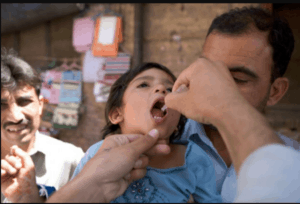On October 17, 2017, U.S.-backed forces captured the Syrian city of Raqqa from the so-called Islamic State (ISIS). The liberation of the city, once the would-be caliphate’s capital, starkly demonstrated ISIS’ extensive territorial losses. However, the fight isn’t over; the terror group still clings to its last territory in Syria’s eastern Deir-ez-Zor governorate. And there, fighting has produced a public health threat with implications far beyond this sparse corner of the desert: polio.

Just days before Raqqa fell, fighting wrecked the only cold room in Deir-ez-Zor’s Mayadin district, destroying 140,000 stockpiled vaccines. The loss threatens to derail efforts to immunize children missed by Deir-ez-Zor’s latest polio vaccination campaign. With at least 52 children sickened by polio in Deir-ez-Zor this year – 42 of them in Mayadin alone – it’s hard to imagine a worse time to disrupt Syria’s vaccine supply.
Without vaccines, the Mayadin outbreak will pose an even greater risk – not only to Syrians, but to vulnerable populations abroad. As domestic and foreign forces converge on Deir-ez-Zor to uproot the last remnants of ISIS, fighters from across the Middle East and beyond could be exposed to polio. Even mild polio infections are highly contagious, and thousands of polio cases can circulate undetected before a single one is detected. Soldiers fighting ISIS in Deir-ez-Zor could unknowingly carry the virus home and reintroduce it to areas where it had long ago been eradicated. (Vaccination rates among some foreign troops are high, but immunity wanes and even vaccinated individuals can be re-infected.)
The WHO has warned that polio circulation anywhere could reintroduce the disease around the world. Now, without proper safeguards, that warning could become a reality. The final fight against the Islamic State is coming. When that day arrives, public health in Syria and abroad could be caught in the crossfire.
